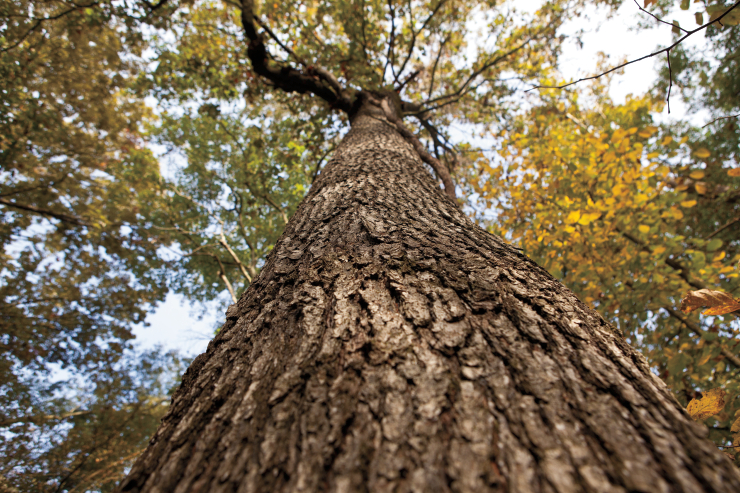Home > Tennessee > Tennessee Environment > Ag Laws and Services Help Save Farms, Forests
Ag Laws and Services Help Save Farms, Forests
In partnership with: Tennessee Department of Agriculture

In 2007, there were 79,500 farms and 11 million acres of farm and forestland in Tennessee. By 2011, those numbers had dropped by 2,200 farms to 10.8 million acres.
Those statistics translate to nearly 110 acres of land being converted from agriculture to other uses in the state every day. This downward trend is occurring at the same time the world’s population is growing, as is consumers’ reliance on the American farmer to provide food. These factors, as well as a passion for land preservation and conservation, have prompted many in the agriculture community to help landowners protect undeveloped land.
Law Preserves Land Value
The Tennessee Farm Bureau Federation is one of the organizations working on that effort. A policy advocate for the farming community, the Farm Bureau supported the 1976 passage of the state’s Greenbelt Law, which provides for a specific formula to be used in calculating the value of farmland and, by extension, the property taxes assessed to the property.
“The Greenbelt Law indirectly encourages the preservation of farmland,” says Rhedona Rose, Farm Bureau executive vice president. She explains that the formula is a way to determine a use value for the land, so that taxes reflect a realistic value based on what the farmer can earn from farming the land, rather than the value of selling it for development.
“Without this law, some farmers, especially in more urban areas where land values are high, have told us that they wouldn’t be able to afford to farm the land and would have to look at selling it.”
Plus, there is a question of services returned for taxes paid, Rose says, who estimates that for every dollar in property taxes paid by farmers, they receive 50 cents to 65 cents of local government services. That compares with $1.25 to $1.50 of services homeowners receive for each dollar paid in property taxes.
But the Greenbelt Law isn’t just protection for farmers. It’s important to all Tennesseans, Rose says.
“A strong agriculture industry provides for a strong quality of life,” she explains. “It’s important as a way to keep food prices reasonable and to ensure quality food and other products. Plus, there are benefits to everyone in terms of air quality, water quality and wildlife habitat when open space land is protected.”

Forestry Services for Farmland
Brandon Bailey, a forester with the Tennessee Department of Agriculture Forestry Division, agrees.
“We all live downstream from someone, and water quality is an important concern for the public and those of us in forestry. A good healthy forest is a filter that catches sediment before it enters the water supply. We work with landowners who are interested in managing their properties for sustainable forestry. We provide them with the best forestry science to help them achieve their goals for their property.”
He explains that such assistance can include an inventory of the trees that are on their land, technical advice on planting trees near water to discourage soil erosion and even recommendations on how best to improve wildlife habitat.
Jim Holden, who with his wife, Peggy, owns 75 acres in Woodbury, says services provided by the forestry division over the past six years have been a valuable partnership.
“We have a small creek on our property, and we have trees along the creek to keep the water cool. That keeps bacteria down, so that it’s a healthy habitat for the fish and wildlife. Brandon has provided me with a plan so that I know which trees along the creek are undesirable and can be cut down in stages and which new ones I should plant to hold the soil, as well as enhance the area for birds and other wildlife.”
Bailey and others from the division have also assisted Holden with a plan to encourage the return of quail to the area. They have also helped with controlled burns on six acres of his bottomland to encourage the development of healthy, warm season grasses.
“I don’t farm my land, but I want to make it a nice place to live for me and for wildlife,” Holden says. “Brandon and his team have a great deal of expertise that they are happy to share as I try to preserve my land.”



